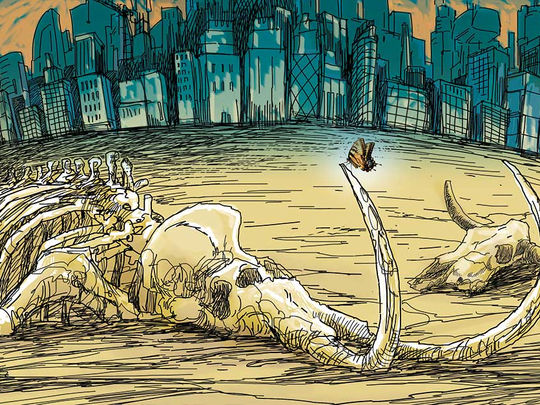



‘If you look at extinction rates, which is hard because you need to be sure something is really extinct, they are probably 100-1,000 times higher than in pre-human times. We're losing biodiversity more quickly than we did in the past. ‘The evidence from all of the recent studies … indicates it is increasing. We’re hearing a lot about biodiversity loss at the moment. Mace believes that we’re only on the brink of this extinction, she says the threat is so severe that biodiversity loss needs to be addressed on a global scale in a similar way to climate change. Kolbert is also the author of Field Notes from a Catastrophe: Man, Nature, and Climate Change.Urgent international action is needed to halt this potentially catastrophic decline in biodiversity, according to Professor Georgina Mace, head of the Centre for Biodiversity and Environmental Research at University College London, UK. “The losses are occurring all over: in the South Pacific and in the North Atlantic, in the Arctic and the Sahel, in lakes and on islands, on mountaintops and in valleys.”ĭemocracy Now! link to the 20-minute interview “It is estimated that one-third of all reef-building corals, a third of all fresh-water mollusks, a third of sharks and rays, a quarter of all mammals, a fifth of all reptiles, and a sixth of all birds are headed toward oblivion,” Kolbert writes. Kolbert explores how human activity - fossil fuel consumption, ocean acidification, pollution, deforestation, forced migration - threatens life forms of all kinds. In The Sixth Extinction: An Unnatural History, journalist Elizabeth Kolbert visits four continents to document the massive “die-offs” that came millions of years ago and those now unfolding before our eyes. But unlike previous extinctions, the direct cause this time is us - human-driven climate change. Scientists say we are now experiencing the sixth extinction, with up to 50 percent of all living species in danger of disappearing by the end of the century. The last came 65 million years ago, when an asteroid about half the size of Manhattan collided with the earth, wiping out the dinosaurs and bringing the Cretaceous period to an end. In the history of the planet, there have been five known mass extinction events. But unlike previous extinctions, the direct cause this time is us. Scientists say we are now experiencing the sixth mass extinction event, with up to 50 percent of all living species in danger of disappearing by the end of the century. In an interview on Democracy Now! author Elizabeth Kolbert discusses her new book, The Sixth Extinction: An Unnatural History, just published.


 0 kommentar(er)
0 kommentar(er)
